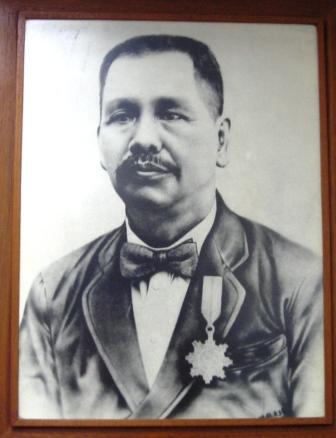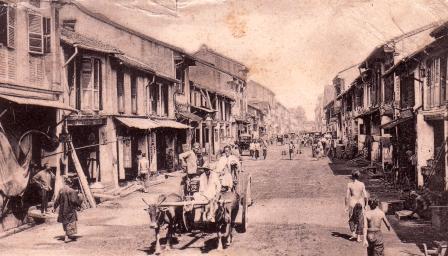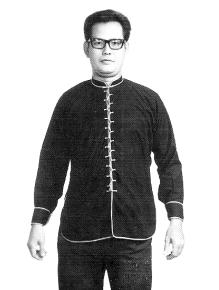 Gan De Yuan 干德源 Gan De Yuan 干德源
Mr Gan De Yuan 干德源 (1884-1946) was born in Yongchun county 永春县, Fujian province 福建省 in Southern China during the Qing dynasty. He was an expert in Chinese medicine and martial arts. Mr. Gan learnt the 5 ancestor’s 五祖拳 style from his aunt’s husband and quickly became highly accomplished in it.
In the early 1900s, he arrived in Singapore and established his school in 1916. The martial arts school was located in Club Street in Singapore Chinatown and offered martial arts training and medical services.
In 1918, he established another school in Kuala Lumpur, and another school in Malacca in 1927. As a result of his institutional expansion, his students can be found in China, Singapore and Malaya. In 1928, one of his disciples, Mr. Lin Bao Shan 林宝山, achieved national championship in the National competition held in Nanjing.
During the Japanese Occupation of Singapore (1942 - 1945), most people lived in extremely difficult situation and when they need medical services, they turn to Mr. Gan for help.
Three of Mr. Gan’s children Gan Hu Hai 干湖海, Gan Hu Chang 干湖昌and Gan Hu Nan 干湖南 trained under him allowing his martial arts and medical skills to be transmitted to the next generation.
In the 1966, his son, Mr Gan Hu Chang 干湖昌, established the Zhonghua Chinese Martial Arts Training School 中华国术建身院, the forerunner of Zhonghua Sports Club. Today, many martial arts schools in Asia, USA and Europe trace their lineage to Mr. Gan De Yuan.
Mr. Gan De Yuan’s history gives us another perspective to understand the nature of Chinese migration and the transmission of traditional arts to Singapore. Pioneers like Mr. Gan offered physical training and medical services in an era where there were no community centers or social services. During times of hardship like the Japanese Occupation, they reach out to people who needed help. By doing so, they manifested the social dimension of their practices.
The number of schools in different parts of the world also demonstrated how Singapore played the role of cultural exporter of traditional Chinese martial arts long before the concept of globalization entered popular discourse.
This article is a tribute to Mr. Gan who had contributed to society in his very own ways and whose descendants and disciples continue to do so.
Related Articles:
|

 Gan De Yuan 干德源
Gan De Yuan 干德源

